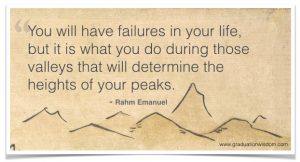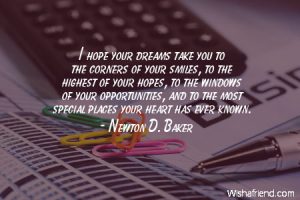3.5 years of struggling at this point with many hours of studying, pain, tears, joy, hope, dedication, and perseverance. At points the entire college thing completely sucked, and sometime still sucks, *cough* *cough* finals. One specific example that comes to mind is receiving a truly failing grade on an exam in a required course and yet leaving the course with a B and testing within the top 10% of the nation.  The years were hard and at times but I would not trade it for the world. I have made many friends, learned astronomical amounts of information that sometimes felt insignificant, paved the way for the future students, became responsibly engaged in my community, and ultimately grew as a person. I am proud to be where I am today because of Concordia, and this class did a great job of highlighting that. So I say thank you Concordia, thank you to all the faculty who have taught me not only textbook materials but life skills. Thank you to all the people that supported me, to all the friends I have made and to those who have been essential in shaping who I am today. Thank you for your liberal learning practices and allowing me to grow, not only as a student but within the world, for my critical thinking and reasoning skills, and for making me a better and more informed person. There is nothing left to say but thank you. As of now, the light at the end of the tunnel is visible and though I do not know what is on the other side, I walk to it gladly, awaiting the new adventures to be found. When I walk across that stage this May I will be forever proud to call Concordia my alma mater.
The years were hard and at times but I would not trade it for the world. I have made many friends, learned astronomical amounts of information that sometimes felt insignificant, paved the way for the future students, became responsibly engaged in my community, and ultimately grew as a person. I am proud to be where I am today because of Concordia, and this class did a great job of highlighting that. So I say thank you Concordia, thank you to all the faculty who have taught me not only textbook materials but life skills. Thank you to all the people that supported me, to all the friends I have made and to those who have been essential in shaping who I am today. Thank you for your liberal learning practices and allowing me to grow, not only as a student but within the world, for my critical thinking and reasoning skills, and for making me a better and more informed person. There is nothing left to say but thank you. As of now, the light at the end of the tunnel is visible and though I do not know what is on the other side, I walk to it gladly, awaiting the new adventures to be found. When I walk across that stage this May I will be forever proud to call Concordia my alma mater.
Neurochemistry was a capstone course, my capstone course. It was the course that was to be part of the final over-encompassing conclusion of my 4 years at Concordia. While I didn’t truly have a choice in my course, due to my specific major, it was a course I would have gladly chosen. I originally heard about Neurochem my junior year from some of the seniors of that year. While it was described as a lot of work, it was also described as one of the most rewarding experiences. I remember the first day of classes, seeing faces I hadn’t seen since before the disciplines split off into their respective fields, Dr. Mach simply walked in casually saying “hey, class” before proceeding to ask us about our summer vacations. There was no rush to get to the material, no rush to go through the syllabus or anything else the first day usually requires. There was simply this relaxed feeling one would get around friends in conversation as we began to get to know each other better. Don’t get me wrong, some of us were still nervous because it was a class and you never truly know what to expect but it allowed us to live in the present moment with each other. I had no idea what to expect of this class but I can say I didn’t expect to get as much out of it as I did. I walked away from this class with new friends and understanding of people that I’ve known (but haven’t truly known) since freshman year, I truly made an impact in my community, and I learned so much about the world around me in a very interdisciplinary lens.
Neurochemistry is simply a course in which we tried to understand neurological problems and how they came to be, this ranged from autism to addiction to schizophrenia to obesity and so many more topics. In my opinion this course qualifies as an ideal capstone course as it truly embodies Concordia’s five goals of liberal learning. So unless you’re a Cobber yourself, you probably don’t understand this capstone idea. Well let me explain it a little and tell you how Neurochem fit into the picture…
According to Concordia’s course catalog (before they switched to PEAK) capstone courses “invite students to apply their liberal learning to significant problems of a global nature.” Ultimately they want us to BREW, or Become Responsibly Engaged in the World.
The 5 Goals of Liberal Learning:
- Instill a love for learning: Science is not an easy topic to just straight forward love. However, it is easier when you are surrounded by people that share your passions and interests. This course didn’t have a standard lecture based teaching style, but an open discussion based teaching style where you were the teacher as much as you were the student. You needed to care about them, the topics discussed were not just those affecting other people in the world but affecting the people surrounding you either directly or indirectly. The use of relevant topics and open formatting allowed for learning to be geared towards interests of the class members rather than what was deemed required by a department.
- Develop foundational skills and transferable intellectual capacities: The moment when you thought you knew how to do research and read scientific articles only to find out you’ve barely scratched the surface is one where you are just flabbergasted. Every Wednesday we would be required to have researched more into a sub-topic of the discussion topic of the week and it was your job become the expert and teach the class about your sub-topic. This not only meant that you needed to be able to read and dissect scientific articles but also be able to search beyond the present information and present all of this information in a clear and intelligent way that others can understand.
- Develop an understanding of disciplinary, interdisciplinary and intercultural perspectives and their connections: Apart from taking my other required core courses I believe this is one of the most diverse courses I have taken. There were students from all different walks of life, all different majors, all different understandings about neuroscience or chemistry or any other relevant topic. To understand the problem you needed the pieces from each discipline or you would not have a complete picture. This course brought together students of at least 5 or 6 different majors to sit down and talk about neurological issues facing the world. We had to figure out what was going on neurologically, chemically, biologically, psychologically and so on depending on the specific case. Without such our diverse group of students we would not have had half the understandings we did.
- Cultivate an examined cultural, ethical, physical and spiritual self-understanding: Walking into this class I thought I knew what was going on with a lot of these diseases or disorders at least on the macro-scale… Boy was I wrong about that… Not only did it challenge the way I thought about neurological issues but also the social issues and the world surrounding them. I had to accept that my understanding was only partially correct and that I needed the greater scale of things and to look at things in diverse points of view to truly understand everything, and I still don’t understand everything.
- Encourage responsible participation in the world: Oh where have I heard this before…? Oh yeah, BREW, that wonderful acronym you hear literally everywhere around Concordia. I swear if it is not said or heard at least once a day something is wrong. Concordia pushes so much for students to Become Responsibly Engaged in the World, and yet this was the first class I truly felt that I had. We BREW through our community action projects done together with a social work class. That was a big, big shock when we found out that we were to work with people who weren’t even in the sciences.
So the community action projects… I like to think of it as the CAP of CAPSTONE. Our project involved going out into the community and working with support professionals to aid in the understanding of anxiety and PTSD. This not only allowed us to become engaged but it truly opened our eyes to the world around us, more specifically the Fargo-Moorhead area in which we have lived for the past 4 years. Going into this project I had no idea some of these support systems were in place let alone this far in the middle of nowhere (it is truly like the middle of nowhere for anyone from the Twin Cities area). I was able to learn how to take my knowledge I’ve accumulated in the past 4 years and present it in a way that benefits everyone, not just fellow scientists. The most rewarding part of this though was not only that we helped a nonprofit in understanding but we indirectly helped the members of the community (their clients) as certain ideas we presented were actually implemented into their programs and are working to help improve the lives of their clients through managing and reducing their anxiety.
I can not say anymore how great this course was or how much I grew within it. The only thing I will say, again, is thank you. Thank you Concordia and thank you Dr. Mach for giving me this experience. 
– Samantha Beckman; Class of 2019
